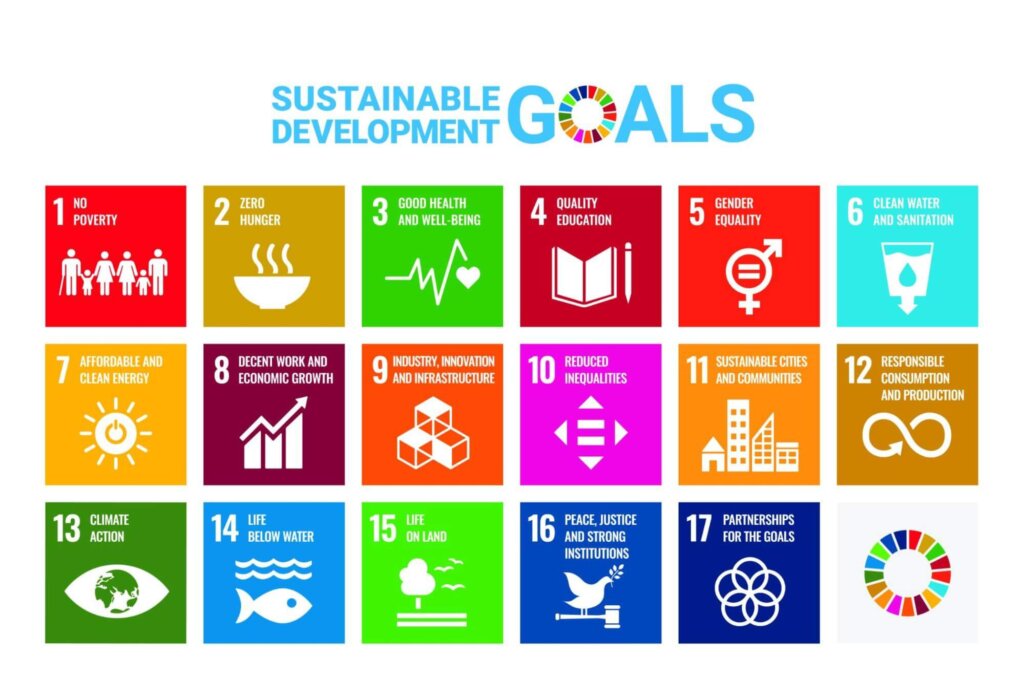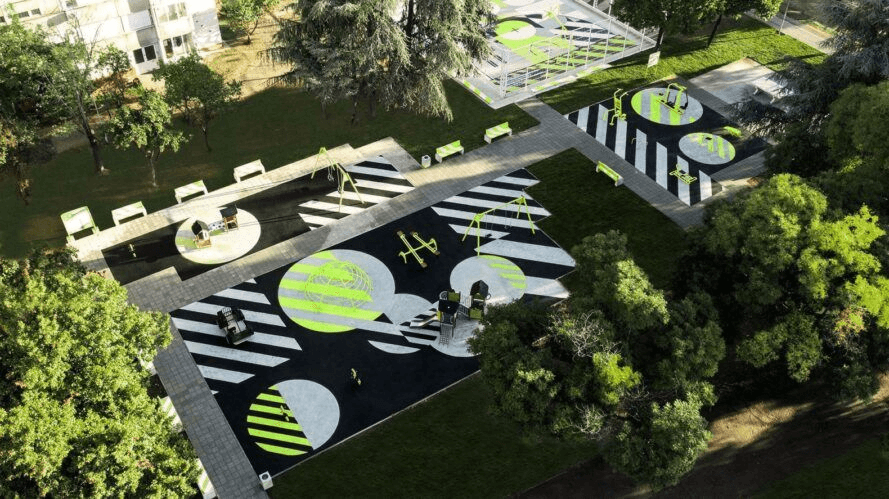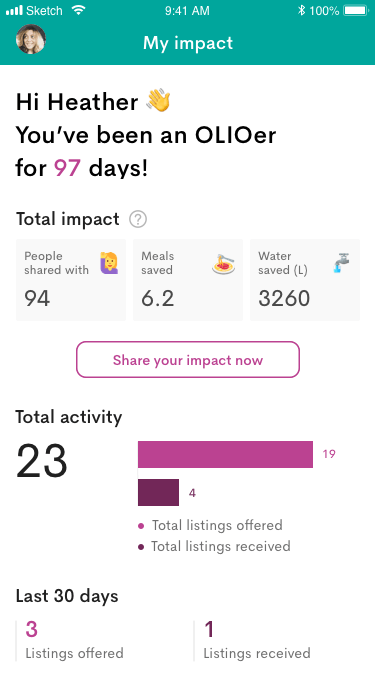 Insight Vanitha Lucas on living resourcefully in our ‘giant household’
Insight Vanitha Lucas on living resourcefully in our ‘giant household’
Feeling overwhelmed by the urgency to act on climate change but don’t know where to start? We asked Vanitha Lucas, Executive Director of Viz for Social Good, for her thoughts on small everyday steps that individuals can take, and how the circular economy acts as the starting point to living sustainably.
We live in a world where the conversation is increasingly being dominated by the consequences of our actions on society and the environment. Picture a giant, bustling household – it’s important to ensure there is enough food to eat, the bills are paid on time and nothing goes to waste. If we’re careless, we will continuously waste our resources and eventually deplete them.
Imagine our planet as this ‘giant household’. The concepts of the United Nations Sustainable Development Goals (SDGs) and the circular economy are very important in ensuring that our ‘household’ remains resourceful and sustainable for future generations.
The United Nations SDGs are a collection of 17 global goals set by the United Nations General Assembly in 2015 for the year 2030. They are often referred to as the ‘World’s To Do List’. The goals are interconnected and meant to address a wide range of issues, including poverty, hunger, health education, climate change, gender equality, clear water, sanitation and social justice.

The 17 United Nations Sustainable Development Goals
A circular economy emphasizes keeping resources in use as long as possible to extract the maximum value from them. This goes against the usual way we make products, use them and throw them away. Instead, it’s a cycle in which products are repaired, refurbished and recycled to create new ones, instead of being discarded. As an example, that old pair of sneakers can be used in a playground, as Nike has done in New Belgrade, or used to make another pair!

This Nike playground is made of 200,000 upcycled sneakers.
Why sustainability and the circular economy can’t drive forward without social justice as the third wheel
The circular economy believes in using things wisely and not wasting, which supports many of the SDGs, especially the ones about using things responsibly, looking after our climate, keeping our waters clean, and taking care of nature. However, by focusing solely on environmental sustainability and adopting circular economy actions like recycling and composting, we run the risk of perpetuating inequalities and injustices.
Social justice initiatives fight against the deep-rooted inequalities that divide our world. How fair would it be if only some members of our ‘giant household’ benefitted while the rest were left vulnerable?
The fashion industry has traditionally been plagued with wasteful practices and poor labour conditions. The current phenomenon of ‘fast fashion’ is perhaps the most obvious example, where brands produce clothing rapidly to keep up with the latest trends, leading to enormous environmental waste due to the short lifespan of their products. This production model relies on cheap labour, whose working conditions may be unsafe. A tragic event that brought global attention to dangerous working conditions was the 2013 Rana Plaza collapse in Bangladesh that killed over 1,100 garment workers. Clearly, then, there are consequences to choosing speed and low costs over social justice and sustainability.
In response, clothing brands like Patagonia and Finisterre, along with reuse/refurb platforms like Vinted and Reskinned, are leading a slow fashion backlash. Increasingly, customers are calling on brands to better intertwine sustainability, social justice, and circular economy principles within their business models.
Too full and can’t eat anymore?
According to the World Economic Forum, cutting food waste and loss could feed up to 2 billion people! Wasted food that rots in landfill sites makes up 10% of the world’s total emissions and is a top contributor of greenhouse gases released into the Earth’s atmosphere.

Source: World Economic Forum
But can food be recycled, reused or refurbished? In a way, yes. There are ways that ‘food’ can contribute to a circular economy by focusing on sustainable production, consumption, and waste management practices. Everyday examples which you are likely familiar with and practising include composting, eating locally and seasonably, buying products with minimal packaging or supporting local food movements.
Elsewhere, some organisations are pushing the boundaries on how to solve food wastage. Platforms like Olio allow users to trade surplus produce or swap home-cooked meals. It’s the ancient barter system revitalised for the 21st century in an effort to combat food waste, promote community sharing and contribute to environmental sustainability. Too Good to Go is a ‘food rescuing’ app that connects businesses with surplus food (supermarkets, restaurants, etc.) to consumers or charities that can use that food before it goes to waste.

Olio’s impact screen for a user
With the food sharing example, you can see the connection between the circular economy and sustainable development goals like zero hunger, where innovation and community engagement create sustainable, inclusive solutions to address food waste and hunger simultaneously.
As insignificant as our daily actions may feel, they have a direct impact on the future of our planet. Solving food poverty can help the climate by reducing food waste, promoting sustainable agriculture, preserving ecosystems, and building more resilient communities.
Taking furniture to the dump?
It’s great to remodel your home, upgrade the décor and get brand new furniture. Do you know what happens to furniture that is thrown away and ends up in a landfill? Similar to wasted food, discarded furniture has a negative impact on the environment. When furniture decomposes in landfills, it can produce methane, a potent greenhouse gas that contributes to climate change. It can also lead to the seepage of harmful chemicals and pollutants into the soil or groundwater.
Bulky furniture takes up space in landfills, restricting the landfills’ capacity for more sustainable waste disposal methods. Even landfills are limited resources, so efficient waste management is crucial to reduce the impact.

What if that furniture was rediverted to help those in need, to those who are experiencing ‘furniture poverty’? Furniture poverty is a situation in which individuals or families lack the essential furniture to live comfortably. Sudden changes in living situations, financial constraints or moving from a homeless status to permanent housing are some of the causes of furniture poverty.
Furniture Bank is one of many organizations whose mission is to end furniture poverty, one family at a time. This is related to SDG 1 (No Poverty), which aims to end poverty in any form. In addition, SDG 11 (Sustainable Cities and Communities) focuses on making cities and human settlements inclusive, safe, resilient and sustainable. In 2022, Furniture Bank furnished approximately 2,600 homes for 5,550 people with 51,480 items provided. Since 2020, they have diverted thousands of tonnes of furniture from landfills, equivalent to 3 million kilograms of CO2 emissions avoided. Furniture reuse is a great example of how the circular economy makes the planet a better place.
Living resourcefully in our ‘giant household’
Living sustainably in our global ‘household’ means valuing every bit of food and every piece of old furniture. The principles of the SDGs and the circular economy can guide us towards a world where resources are cherished and nothing is wasted. Not wasting food and recycling furniture may seem small, but they are powerful steps in protecting our environment and ensuring a prosperous future for everyone.
Each one of us has the capability to be the change we want to see, so let’s be vigilant owners of our ‘giant household.’ Let’s reduce, reuse, and recycle with purpose and passion, inspiring those around us to join in building a sustainable, inclusive world for all.
Thanks to Vanitha for sharing some ideas on changes we can all make to live more sustainably. If you’re interested in how we could help your organisation do more with your sustainability data, connect with us to learn more.
About Vanitha

Vanitha Lucas is a data and analytics philanthropist dedicated to raising awareness and influencing change on societal issues. She is the Executive Director of Viz for Social Good and has helped nonprofits and charities around the world to advance their missions through data visualisation and storytelling. She currently consults on analytics modernization, data literacy and data for social impact. Vanitha lives in Toronto, Canada.
